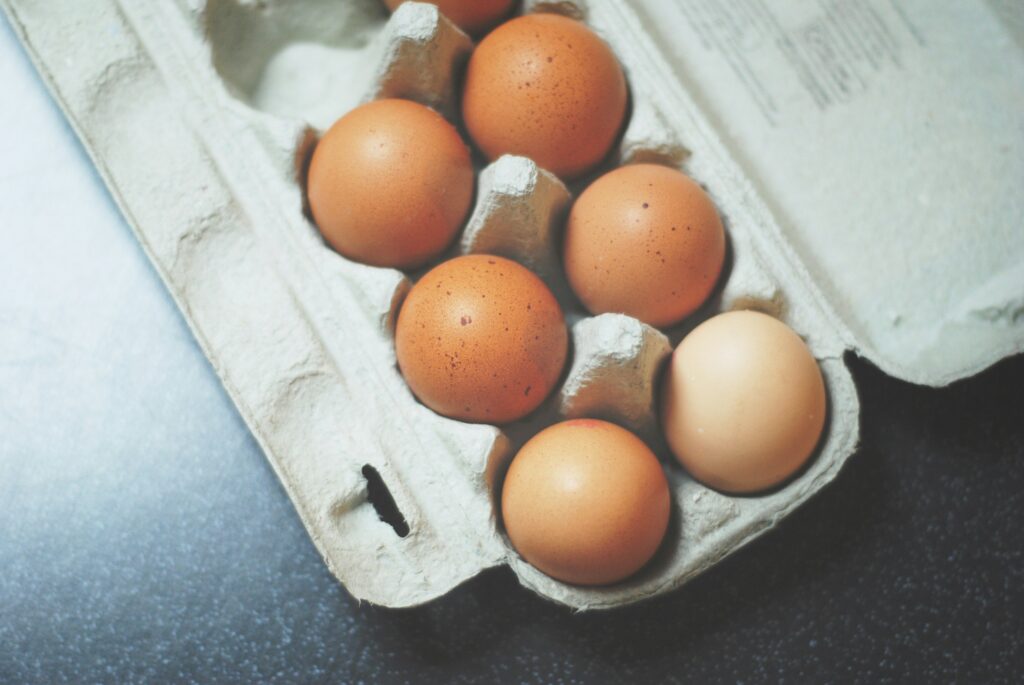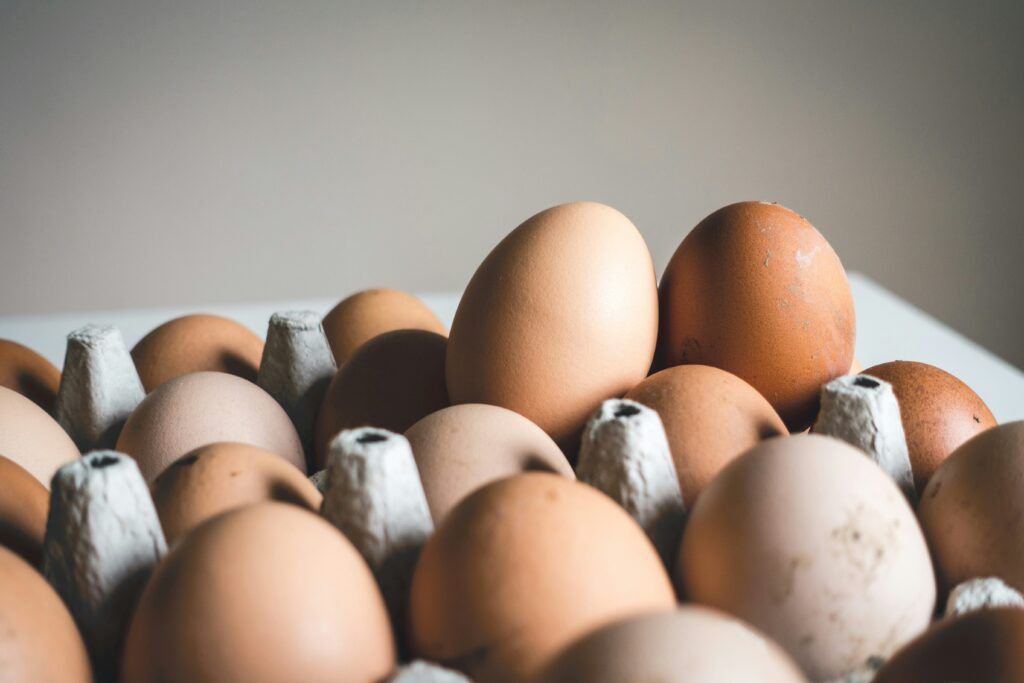Introduction to Egg Storage Safety
When it comes to storing eggs, many households are left wondering, “Do I need to refrigerate unwashed eggs immediately?” The answer depends largely on how the eggs were handled post-laying. While store-bought eggs in the U.S. are typically washed and need refrigeration, unwashed farm-fresh eggs come with a natural protective coating called the “bloom.”
Understanding how long unwashed eggs can sit out—and how to do it safely—can help you avoid waste, maintain flavor, and most importantly, protect your health. In this guide, we’ll uncover the science behind egg storage and give you the best practices you can follow with confidence.

Washed vs. Unwashed Eggs: What’s the Difference?
The key factor that determines whether eggs require refrigeration is whether they’ve been washed.
Understanding the Bloom (Cuticle)
Unwashed eggs retain a natural layer called the bloom or cuticle, which protects the egg from bacteria and moisture loss. When eggs are washed, especially with warm water, this protective coating is stripped away, making the egg porous and more vulnerable to contamination.
| Feature | Washed Eggs | Unwashed Eggs |
| Protective Bloom | Removed | Retained |
| Refrigeration Required | Yes (in U.S.) | Not immediately (if fresh) |
| Shelf Life (Room Temp) | 2 hours (U.S. standard) | Up to 2–3 weeks (varies) |
This difference is why the U.S. mandates refrigeration of store-bought eggs, while many European countries leave eggs on the counter.
How Long Can Unwashed Eggs Sit Out?
If kept unwashed and fresh from the coop, eggs can sit out safely—but the duration depends on a few factors.
USDA vs. European Guidelines
- USDA recommends refrigerating eggs within 2 hours of being laid or brought home—especially in warmer climates.
- In contrast, EU regulations prohibit washing eggs commercially and allow shelf storage, trusting the bloom for protection.
Room Temperature Factors
For unwashed, backyard eggs:
- 70°F (21°C) or cooler: Up to 3 weeks safely.
- Above 80°F (27°C): Limit to a few days, as bacterial growth can accelerate.
It’s important to note that once you refrigerate eggs, they should stay cold. Fluctuating temperatures can cause condensation, encouraging bacterial contamination through the shell.
Risks of Leaving Eggs Out Too Long
Even with the bloom intact, time and temperature exposure can increase the risk of spoilage.
Salmonella and Foodborne Illness
Unwashed eggs have a low risk of Salmonella contamination—but not zero. As time passes and especially in warmer conditions, Salmonella enteritidis can penetrate the shell.
Signs of Spoiled Eggs
- Sour smell when cracked open
- Discoloration of whites or yolk
- Floating in water test: if it floats, it’s gone bad
Regularly testing eggs with the float test or candling (holding an egg to light to inspect its contents) can help you identify freshness.

Photo by Erol Ahmed on Unsplash
How to Properly Store Unwashed Eggs
Room Temperature Storage Guidelines
- Store in a cool, dark place like a pantry or cupboard
- Avoid direct sunlight and heat sources
- Use within 2–3 weeks
Refrigeration Best Practices
- Place eggs pointy-end down in cartons
- Keep in the main fridge body, not the door
- Label eggs with the collection date
If unsure of the egg’s status or age, it’s best to err on the side of caution and refrigerate.
How Farmers and Homesteaders Handle Egg Storage
Homesteaders often collect eggs daily and store them on countertops without refrigeration. They mark the collection dates with a pencil and rotate older eggs forward for use first.
Some also use water glassing (preserving in hydrated lime solution) or oil-coating techniques to seal the pores of the shell, mimicking the bloom and extending room-temp shelf life up to several months.
Can You Wash Eggs Before Storing?
Why Timing Matters
You can wash eggs, but doing so before storage removes the protective bloom. This means you must refrigerate immediately after washing.
Best practice:
- Leave unwashed until use
- Wash just before cooking
- Use warm water (not cold) to prevent internal suction of bacteria
Egg Safety Tips Every Household Should Follow
- Collect eggs daily to minimize exposure.
- Don’t wash eggs until ready to use.
- Store pointy-end down.
- Keep eggs in a consistent environment—avoid sudden temp changes.
- Label eggs with collection dates.
- Use float test or sniff test before use.
- If cracked, discard immediately.
- For long-term storage, consider pickling, freezing, or lime water methods.
- Always cook eggs to a safe internal temperature: 160°F (71°C) for dishes.

Photo by Jakub Kapusnak on Unsplash
FAQs About Unwashed Eggs
Q1: Can I store unwashed eggs at room temperature indefinitely?
A: No. While unwashed eggs can sit out longer than washed ones, 2–3 weeks is generally the safe limit depending on room temperature.
Q2: Do I need to refrigerate unwashed farm eggs?
A: Not immediately, but once refrigerated, they should remain cold.
Q3: What happens if I wash an egg but don’t refrigerate it?
A: The egg becomes vulnerable to bacteria and should be used quickly or refrigerated.
Q4: Are store-bought eggs in the U.S. unwashed?
A: No. All commercially sold eggs in the U.S. are washed and sanitized, so refrigeration is mandatory.
Q5: How do I know if my unwashed egg has gone bad?
A: Perform the float test or crack it open and check for off-smells or discoloration.
Q6: Is the bloom visible to the naked eye?
A: No, it’s a microscopic protective layer, but it makes a big difference in shelf life.

Photo by Mads Eneqvist on Unsplash
Conclusion: Be Informed, Stay Safe
So, how long can unwashed eggs sit out? The answer lies in temperature, time, and proper handling. While farm-fresh eggs with their natural bloom can sit out for up to 3 weeks in cooler conditions, it’s always wise to monitor them closely and store them properly. Whether you’re a backyard chicken keeper or a curious consumer, practicing good egg hygiene and understanding the risks ensures delicious and safe meals every time.
